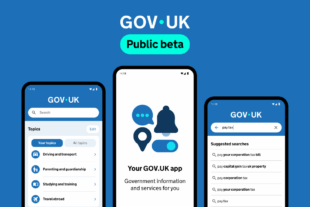
The Finding Things team held a tagging day on 9 January 2017 to connect the education-related content to the draft new taxonomy. Publishers look at each of their pages and choose tags like "Early years funding" and "Phonics".
Publishers from all the education organisations came together to spend the day tagging content, including:
- Department for Education
- Ofsted
- Ofqual
- Skills Funding Agency
- Standards and Testing Agency
- National College for Teaching and Leadership
- Education Funding Agency
The publishers achieved a lot more than we hoped for - 3,286 items were tagged in one day.
This allows us to understand where the taxonomy needs to change because there's either too much content in one area or too little. It also paves the way for a public beta of the new navigation.
It also gave us an opportunity to gauge publishers’ confidence in the taxonomy. We compiled links to all GOV.UK education content, divided them by organisation into spreadsheets, then distributed these to publishers for tagging. We also included a comments column, for when publishers:
- struggled to find an appropriate category
- thought a category needed a ‘child’ or subcategory
- had any other general suggestions for improving the taxonomy
We provided feedback forms after the day was over, and started a Basecamp discussion thread for publishers to put forward suggestions more publicly. Our information architects Vicky and Graeme have been using these comments to create the latest version of the taxonomy.
Come together
Being in the same room helped a lot. Bringing everyone together brought us a sense of shared purpose as well as a shared understanding of how to do good tagging. This includes:
- thinking about where users will look for the content (people may well choose different routes into the content)
- tag as specifically as possible (for example choosing 'Home schooling' rather than 'Education' in general)
- only choosing tags representing what the content is specifically about (don't spam the tags to surface your content everywhere)

We were able to sort out any problems very quickly. Publishers were able to talk to each other quickly to resolve issues that might otherwise have slowed us down for days.
Filling in a spreadsheet can be a bit dispiriting, so we created a dashboard to show each organisation's progress so they can see what's left.

Everything in its right place
Tagging only works if people are putting things in the places users expect to find them. We drew on our tree testing research to see if publishers were interpreting the taxonomy in the same way as their users. The good news is, they did.
Alan is a senior content designer on GOV.UK. You can follow him on Twitter.
 The GOV.UK app went live in public beta in July 2025. Find out what’s been happening, and what’s coming next,
The GOV.UK app went live in public beta in July 2025. Find out what’s been happening, and what’s coming next,
6 comments
Comment by Anna Long posted on
Great! Did you use any metrics to measure successful tagging? If so, what was the improvement in findability?
Comment by Alan Maddrell posted on
Hi Anna
When the beta launches, we'll be looking at how easily people find the content. There are a lot of different ways to track that, such as how long people spend on the site, the number of pages they view in their visit, how often users engage with navigation pages, how often they use internal search, as well as the regular benchmarking surveys.
Comment by Anna Long posted on
You've spent months building a taxonomy, now updating content to reference it, and you don't have any idea how it will perform yet?
Comment by Alan Maddrell posted on
We've conducted several rounds of user testing in the lab as well as gathering quantitative data through round of tree-testing. We've made several iterations to the taxonomy as well as designs for the navigation. That said, we'll be monitoring things very closely when the beta comes around. I hope that clarifies.
Comment by Vanessa Smith posted on
Why do you need to add tags to your content? I thought in this Google era search engines infer the subject from the content?
Comment by Alan Maddrell posted on
Hi Vanessa
The tagging drives new navigation pages, and we're looking into how it will benefit internal site search. We're not currently thinking to use tags as metadata for external search.